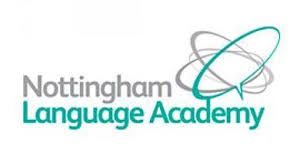
Project Scheduling, Planning, Costing & Budgeting (ECCM Workshop 2) - Certificate Program
Course ID: 2511107101380EGI
Course Dates : 10/11/25 Course Duration : 5 Studying Day/s Course Location: Dubai, UAE
Language: Bilingual
Course Category: Professional and CPD Training Programs
Course Subcategories: Finance and Accounting Mastery
Course Certified By: * Projacs Academy
* Professional Training and CPD Programs
Certification Will Be Issued From :
KSA
Course Fees: £2,945.60
Vat Not Included in the price. VAT may vary depending on the country where the course or workshop is held.
Click to Pay
Date has passed please contact us Sales@e-s-hub.com
Course Information
Introduction
In an era where projects are increasingly complex and resource-constrained, the ability to effectively schedule, plan, cost, and budget has become a cornerstone of successful project management. Whether it’s constructing a new infrastructure, launching a product, or implementing organizational change, project success hinges on meticulous planning and disciplined execution. This course addresses the critical need for professionals to master these competencies, equipping them with tools and techniques that align with industry best practices and frameworks such as PMBOK (Project Management Body of Knowledge) and Earned Value Management (EVM). By bridging gaps in knowledge and practice, participants will be empowered to deliver projects on time, within scope, and under budget.
One of the most pervasive challenges in project management is the misalignment between planning and execution. Too often, organizations experience delays, cost overruns, and scope creep due to inadequate scheduling and improper resource allocation. For instance, the Sydney Opera House, initially estimated to cost $7 million and take four years to complete, ended up costing over $100 million and took 14 years. Such cases underscore the importance of robust planning and accurate costing methodologies. This course delves into advanced scheduling techniques like Critical Path Method (CPM) and Gantt charts, enabling participants to anticipate bottlenecks and mitigate risks before they escalate.
Moreover, mastering project costing and budgeting is not merely about crunching numbers; it requires a strategic mindset that integrates financial acumen with operational efficiency. Organizations that excel in this domain often leverage tools like Activity-Based Costing (ABC) and Monte Carlo simulations to forecast costs more accurately. These methods allow businesses to allocate resources optimally while maintaining flexibility to adapt to changing circumstances. Participants will explore how these tools can transform their approach to financial planning, ensuring sustainability and profitability in their projects.
The benefits of acquiring expertise in project scheduling and budgeting extend beyond individual career advancement. Organizations that invest in developing these skills among their workforce report higher project success rates, improved stakeholder satisfaction, and enhanced competitive advantage. For example, a multinational engineering firm reduced its project delivery times by 20% after training its project managers in advanced scheduling techniques. Similarly, individuals who master these skills often find themselves better positioned for leadership roles, equipped to drive innovation and value creation within their teams.
The course also draws on established theories and frameworks, such as the Triple Constraint Model (Scope, Time, Cost), which emphasizes the interconnectedness of these elements in achieving project objectives. By grounding the curriculum in these foundational concepts, participants will gain a holistic understanding of how to balance competing priorities while delivering high-quality outcomes. Real-world case studies, such as NASA’s Mars Rover mission, will be used to illustrate how effective planning and budgeting can turn ambitious goals into reality despite formidable challenges.
Ultimately, this program aims to equip participants with actionable insights and practical tools that transcend theoretical knowledge. Through interactive sessions, hands-on exercises, and real-time simulations, learners will apply what they have learned to scenarios reflective of their professional environments. Whether you are managing small-scale initiatives or overseeing large, cross-functional projects, this course will provide you with the confidence and competence to navigate complexities and achieve measurable results.
Objectives
By attending this course, participants will be able to:
Analyze project requirements and develop comprehensive schedules using Critical Path Method (CPM) and Gantt charts.
Evaluate cost estimation models and implement Activity-Based Costing (ABC) for accurate project budgeting.
Design risk mitigation strategies to address potential delays and cost overruns during project execution.
Apply Earned Value Management (EVM) principles to monitor and control project performance effectively.
Implement compliance protocols related to financial reporting and auditing standards in project management.
Synthesize data from various sources to create actionable insights for decision-making and stakeholder communication.
Assess the impact of external factors, such as market fluctuations and regulatory changes, on project budgets and timelines.
Who Should Attend?
This course is ideal for:
Project managers seeking to enhance their scheduling, planning, and budgeting capabilities.
Finance professionals tasked with overseeing project expenditures and financial performance.
Engineers and construction managers responsible for delivering large-scale infrastructure projects.
Consultants advising clients on project governance and operational efficiency.
Entrepreneurs managing start-up ventures requiring precise financial planning.
These groups will find the course invaluable as it bridges the gap between technical expertise and managerial acumen, enabling them to deliver projects that meet both client expectations and organizational goals. While prior experience in project management is beneficial, the course is designed to accommodate intermediate learners looking to deepen their knowledge and refine their skills. Advanced practitioners may also benefit from exposure to cutting-edge tools and methodologies discussed throughout the program.
Training Method
• Pre-assessment
• Live group instruction
• Use of real-world examples, case studies and exercises
• Interactive participation and discussion
• Power point presentation, LCD and flip chart
• Group activities and tests
• Each participant receives a 7” Tablet containing a copy of the presentation, slides and handouts
• Post-assessment
Program Support
This program is supported by:
* Interactive discussions
* Role-play
* Case studies and highlight the techniques available to the participants.
Daily Agenda
The course agenda will be as follows:
• Technical Session 08.30-10.00 am
• Coffee Break 10.00-10.15 am
• Technical Session 10.15-12.15 noon
• Coffee Break 12.15-12.45 pm
• Technical Session 12.45-02.30 pm
• Course Ends 02.30 pm
Course Outlines
Foundations of Project Scheduling and Planning
Introduction to project lifecycle and key terminology.
Overview of scheduling techniques: CPM, PERT, and Gantt charts.
Identifying dependencies and task sequencing.
Hands-on exercise: Creating a basic project schedule.
Day 2:
Advanced Scheduling and Risk Management
Resource leveling and optimization strategies.
Techniques for identifying and mitigating schedule risks.
Introduction to Monte Carlo simulations for uncertainty analysis.
Case study discussion: Lessons from failed scheduling attempts.
Day 3:
Principles of Cost Estimation and Budgeting
Fundamentals of cost estimation: Bottom-up vs. Top-down approaches.
Applying Activity-Based Costing (ABC) for granular budgeting.
Understanding fixed vs. variable costs in project contexts.
Group activity: Preparing a preliminary project budget.
Day 4:
Monitoring and Controlling Project Performance
Introduction to Earned Value Management (EVM).
Calculating key metrics: SPI, CPI, and TCPI.
Strategies for variance analysis and corrective actions.
Interactive session: Using EVM software for real-time tracking.
Day 5:
Compliance, Reporting, and Strategic Insights
Compliance requirements for financial reporting in projects.
Tools for effective stakeholder communication and reporting.
Leveraging project data for strategic decision-making.
Final assessment and certification ceremony.



















































